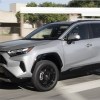
Pickup Truck Sales Appear To Be Pandemic-Proof
Thanks to the ongoing coronavirus pandemic, millions across the U.S. are unemployed and scores of small businesses have had to permanently close. It hardly sounds like ideal conditions for vehicle sales to thrive or even survive, right? It turns out that people still need pickup trucks for work, even during a pandemic.
Recently-released third-quarter truck sales numbers are out. They show that some top-selling pickup trucks in the U.S. have only seen a minor drop in sales. Others have seen a sales increase when compared to the third quarter of 2019.
The 4 top-selling trucks in Q3 2020

The folks at GoodCarBadCar posted third-quarter pickup truck sales in the U.S. and the numbers might surprise some.
The third-quarter sales numbers for the pickup truck segment in the U.S. includes all major models sold in the country. The current numbers are compared to the sales of the same quarter of the previous year. The percentage of change, positive or negative, is also listed to present a clearer picture of what the sales numbers actually mean.
The four best-selling trucks in the third quarter were the Chevrolet Colorado, Chevrolet Silverado, Ford F-Series, and Ford Ranger. Chevrolet sold 27,255 units of the Colorado which is 13.9% less than they sold in the third quarter of 2019. They sold 147,484 units of the Silverado which was only a 5.1% decrease in sales when compared to the third quarter last year.
Ford sold 221,647 units of their F-Series of trucks for a sales increase of 3.5% over the third quarter of 2019. They sold 28,350 units of their Ranger for an eye-catching 8.2% increase in sales over the third quarter of 2019.
The numbers clearly show that pickup trucks have been able to hold their own even during a sweeping pandemic that’s crippled the American economy in 2020.
A challenging year for vehicle sales
Even while the sales of cars and SUVs dropped off, pickup truck sales have managed to hold on. According to USA Today, some Americans were able to use low-interest financing offers to get the trucks they needed. Others found ways to get the trucks they needed when presented with unforeseen opportunities.
There’s speculation that one reason pickup truck sales fell was a drop in orders from government and commercial buyers. But retail sales were always more robust than fleet sales. In April 2020, pickup truck sales exceeded those of cars for the first time, according to Kelley Blue Book.
There are also the side effects of the pandemic to consider. Quarantine orders and business restrictions varied from state to state in the U.S. Many rural areas where many might own a truck for business or family needs were less restricted than densely-populated cities where you don’t see the same volume of truck sales.
How have truck sales survived COVID-19?
There are many reasons for truck sales hanging in there. The pandemic left a transportation void that some have been able to fill, starting businesses to help people and businesses keep commerce going. Others who work in construction or renovation rely heavily on trucks for their trade. Many of those can’t put off a needed truck purchase for very long.
Those who need trucks for construction or renovation services can’t wait out the pandemic to buy new trucks. Fortunately, those folks are helped by a number of great financing offers meant to stimulate sales.
Current gas prices are another contributing factor. Lower gas prices are another friend to businesses trying to survive the current challenging economic conditions.
While truck sales are managing to hold steady, it remains to be seen if supply will be able to meet demand in the months to come as the pandemic continues.


